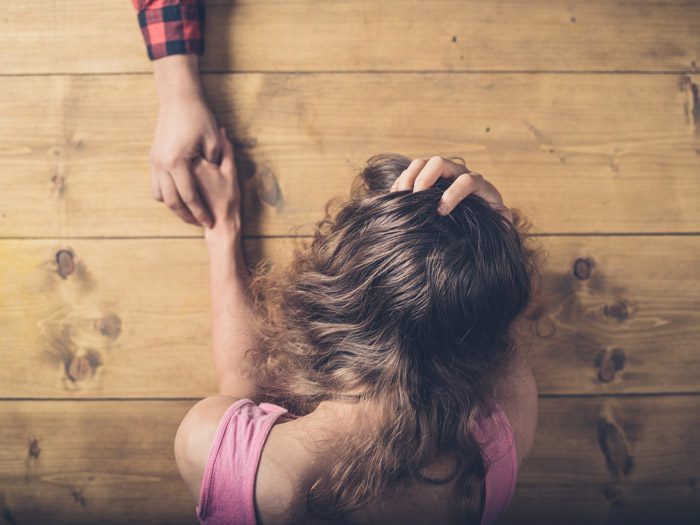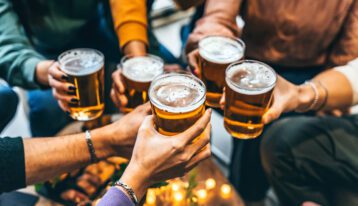By Sandy Baker
Drug and alcohol addiction rips into relationships and can destroy marriages.
If you are in a relationship with someone who has a substance use disorder, chances are good you will feel hurt, betrayed, and at the end of your rope. But understanding what alcohol and drug addiction is and how it impacts your relationship can help you and your loved one throughout the recovery process. Learning about codependency is a key place to begin.
What Is Codependency?
Codependency happens when an individual puts the other person first in their relationship. This sounds like an honorable thing to do. After all, most parents put their children ahead of themselves. But when this comes at the expense of your health, it’s no longer healthy or beneficial.
People become codependent over time. Generally, codependency is a learned behavior. People who tend toward codependency have seen it in action at some point in their life. Perhaps their mother always deferred to their father or the other way around.
Many people who witness codependency at a young age become codependent later on in adult relationships. They enter relationships with people who are emotionally unavailable to them, hoping that if they just love the person enough, things will change.
Many times, codependency leads to feelings of not being worthy of love. Someone who is codependent allows their loved one to mistreat or abuse them. They believe they can fix the problem. Day in and day out, this is all they try to do.
How Does Codependency Relate to Addiction?
Codependent people often become enablers, though they have no true intention of doing so. Rather, they often take extreme steps to help their partner and show that they care. Their actions are motivated by hopes of improving the relationship, but the effect is the exact opposite. Enabling someone limits their ability or desire to get treatment for addiction.
Here are a few key examples:
- Enabling Behavior: An example of codependency in addiction is when a family member or partner repeatedly covers up for or makes excuses for the addict’s behavior, such as calling in sick for them, paying their bills, or minimizing the extent of their substance use. This enables the addict to continue their addictive behaviors without facing the consequences.
- Neglecting Own Needs: A codependent individual may neglect their own needs, feelings, and desires in favor of prioritizing the needs of the addicted loved one. They might suppress their emotions, set aside their own goals, and devote an excessive amount of time and energy to taking care of the addicted loved one.
- Fear of Abandonment: Codependent individuals often have a strong fear of being abandoned or rejected by the addicted loved one. This fear can drive them to tolerate unhealthy behaviors and remain in toxic relationships, even when they are aware of the negative consequences.
- Emotional Roller Coaster: The codependent person’s emotional state becomes closely tied to the addicted loved one’s behavior. For example, if the addict is sober or making progress, the codependent person may feel elated and hopeful. Conversely, if the addict relapses, the codependent person may experience extreme anxiety, sadness, or even depression.
- Isolation and Social Withdrawal: Codependency can lead to isolation from friends, family, and support networks as the codependent person becomes increasingly focused on the needs of the addicted loved one. They may avoid social situations to prevent others from discovering the addicted loved one’s behavior.
Living with an addicted loved one is a difficult situation. And it can be very difficult to admit that you are, in fact, codependent.
Addressing this problem requires real change, often with professional help.
How Can You Work Through Codependency and Improve Your Relationship?
Individuals who are dependent on drugs and alcohol have experienced chemical changes within their brain. These changes create a demand for alcohol or drugs. The demand is so strong that it becomes nearly impossible for individuals to simply stop using or even stop thinking about using. Detox and addiction treatment are essential for removing that type of all-encompassing addiction.
Ultimately, a component of alcohol and addiction therapy will involve detox and then counseling. The counseling should include loved ones and/or the household unit. However, this is not all that has to happen.
If you are codependent, you need to make some changes for yourself. If you are at risk of abuse of any type, removing yourself from the environment is essential. No amount or type of abuse is acceptable. As long as you continue to be near and enable your loved one’s addiction, the longer the circumstances will continue. Remove yourself from their life until they get sober.
It is not easy to learn to say no. Many people who are codependent have a fear of failure. You may feel as though you failed in stopping the addiction from occurring or that the addiction is your fault in some other way. In addition to this, you may feel it is wrong to simply walk away when someone is ill and suffering. Yet this may be the only way to move your relationship forward.
Getting Your Loved One Help
You may want to require your loved one to seek help through detox and treatment at The Ranch at Dove Tree. Solutions exist to provide you and your loved one with the type of support you need.
Seeking help is the most important first step to take. It could save your loved one’s life and help you to get your life back, too.







